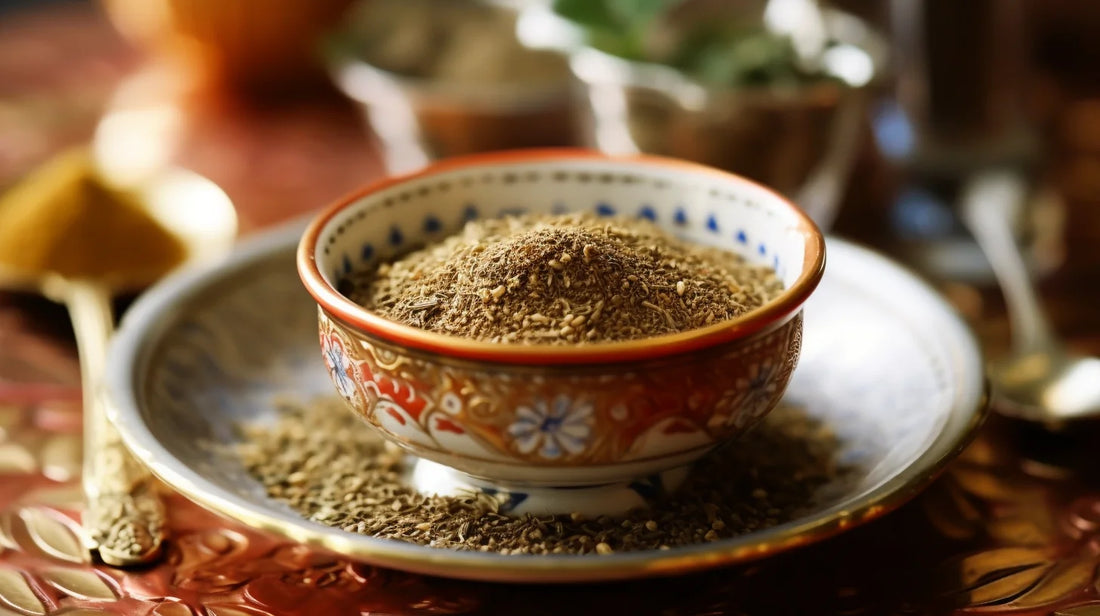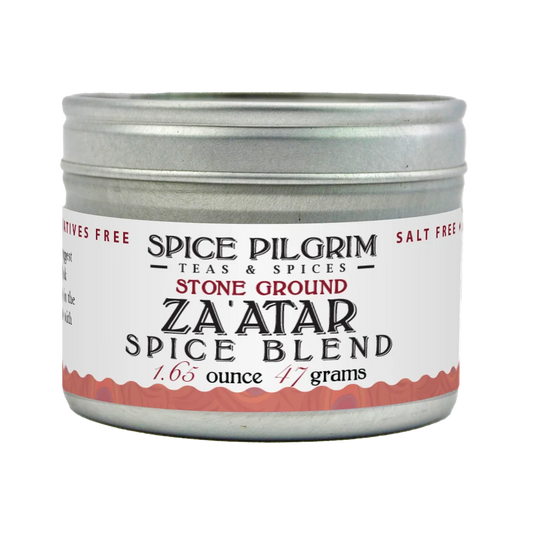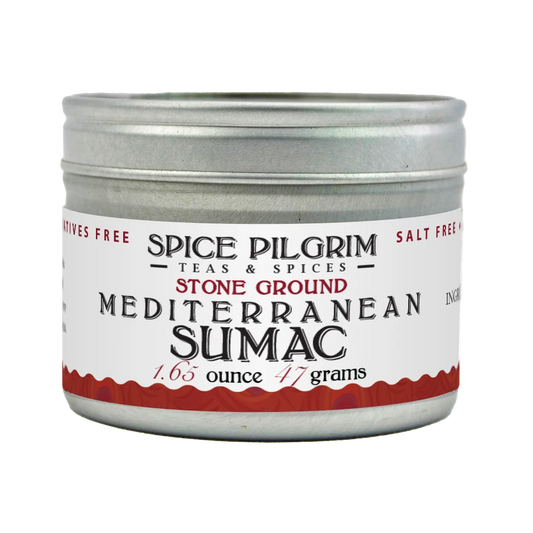Unleash your taste buds and embark on a flavorful journey to the Middle East with the tantalizing allure of freshly stone-ground Za'atar seasoning. This ancient spice blend, known for its aromatic herbs and vibrant flavors, has captured the hearts of culinary enthusiasts worldwide. At Spice Pilgrim, we bring you the finest quality salt-free, sugar-free, and preservative-free Za'atar, carefully crafted to add a touch of magic to your dishes. Join us as we explore the wonders of this versatile spice mix and discover why it has become a treasured gem in Middle Eastern cuisine.
What is Za'atar?
Za'atar is more than just a seasoning; it's an experience that awakens your senses. This Middle Eastern spice mix is deeply rooted in history and culture, embodying the rich flavors and fragrances of the region. With its distinctive combination of herbs, seeds, and spices, Za'atar delivers a unique and complex flavor profile that is both earthy and tangy.
Where does Za'atar come from?
Za'atar has a storied past, dating back centuries. It originated in the Levant region, encompassing modern-day Lebanon, Syria, Jordan, Palestine, and Israel. The term "Za'atar" refers to both the spice blend and the herb from which it derives its name. The herb itself, known as wild thyme, is abundant in the region's rocky terrains and is harvested during the summer months.
How to pronounce Za'atar?
Za'atar is pronounced as "zah-ah-tahr". The stress is on the first syllable, and the "a" in the second syllable is pronounced as a short "ah" sound. The "t" in the third syllable is pronounced as a light "t" sound, and the "r" is rolled.
Here is a step-by-step guide on how to pronounce "za'atar":
- Start by saying the word "zah".
- Add the sound "ah" to the end of the word.
- Roll the "r" sound.
It is important to note that the pronunciation of "za'atar" may vary slightly depending on the dialect of Arabic that is spoken. However, the basic pronunciation is the same.
Here are some tips for pronouncing "za'atar" correctly:
- Practice saying the word slowly at first.
- Once you can say the word slowly, try saying it faster.
- Listen to the video or audio recording of the word and try to match your pronunciation.
- Don't be afraid to ask a native Arabic speaker for help.
What is Za'atar made of?
The recipe for Za'atar can vary depending on the region and personal preferences. However, it typically consists of a harmonious blend of dried thyme, roasted sesame seeds, sumac, and oregano. At Spice Pilgrim, we take pride in our commitment to freshness and quality. Our Za'atar is freshly stone-ground, ensuring that the natural oils and flavors of the ingredients are preserved, resulting in a truly remarkable spice blend.
How to use Za'atar?
Za'atar's versatility knows no bounds, making it an essential addition to your culinary repertoire. Here are just a few creative ways to incorporate this flavorful seasoning into your dishes:
- Sprinkle Za'atar on freshly baked bread, drizzled with olive oil, for an irresistible appetizer.
- Use it as a rub for grilled meats, adding a delightful crust and an explosion of flavors.
- Enhance the flavors of roasted vegetables by generously seasoning them with Za'atar before cooking.
- Mix Za'atar with olive oil or yogurt to create a delectable dip or marinade.
- Get creative in the kitchen by adding Za'atar to salads, soups, or even popcorn for a unique twist.
What does Za'atar seasoning taste like?
Za'atar boasts a complex flavor profile that is both savory and tangy, with subtle herbal undertones. The earthiness of thyme blends harmoniously with the nutty aroma of sesame seeds, while sumac provides a delightful citrusy tang. The result is a burst of flavors that elevates any dish it touches, leaving a lasting impression on your palate.
Can Za'atar go bad?
As with any spice, the freshness of Za'atar is crucial for preserving its vibrant flavors. While it doesn't necessarily go bad, over time, Za'atar can lose its potency and aroma. To ensure you experience the true essence of Za'atar, it is recommended to store it in an airtight container in a cool, dark place, away from direct sunlight and moisture.
Za'atar: A Spice with Many Health Benefits
Za'atar's versatility extends beyond the kitchen. It is believed to offer numerous health benefits, making it a valuable addition to your daily routine. Za'atar is a good source of antioxidants, which can help protect cells from damage. It is also a good source of vitamins A, C, and E, which are all important for immune function. Za'atar has also been shown to have anti-inflammatory and antibacterial properties.
Some of the potential health benefits of za'atar include:
- Boosting the immune system
- Reducing inflammation
- Fighting bacteria
- Improving digestion
- Reducing stress
- Improving mood
What is the difference between Za'atar and sumac?
Sumac is often a key ingredient in Za'atar, adding a tangy and slightly acidic note to the spice blend. However, it is essential to note that Za'atar encompasses more than just sumac. It also includes dried thyme, sesame seeds, and oregano. Sumac, on its own, is a red powder derived from ground sumac berries, and it imparts a distinct tartness that is unparalleled.
As you embark on your culinary adventures, let the exotic allure of Za'atar transport you to the heart of the Middle East. Spice Pilgrim's commitment to sourcing the finest ingredients and our dedication to crafting stone-ground, salt-free, sugar-free, and preservative-free Za'atar ensures that you experience the true essence of this ancient spice mix. Discover the endless possibilities that Za'atar offers and unleash your creativity in the kitchen. Connect with Spice Pilgrim today and let us guide you in making the perfect choice for your next culinary masterpiece. Buy Za'atar


